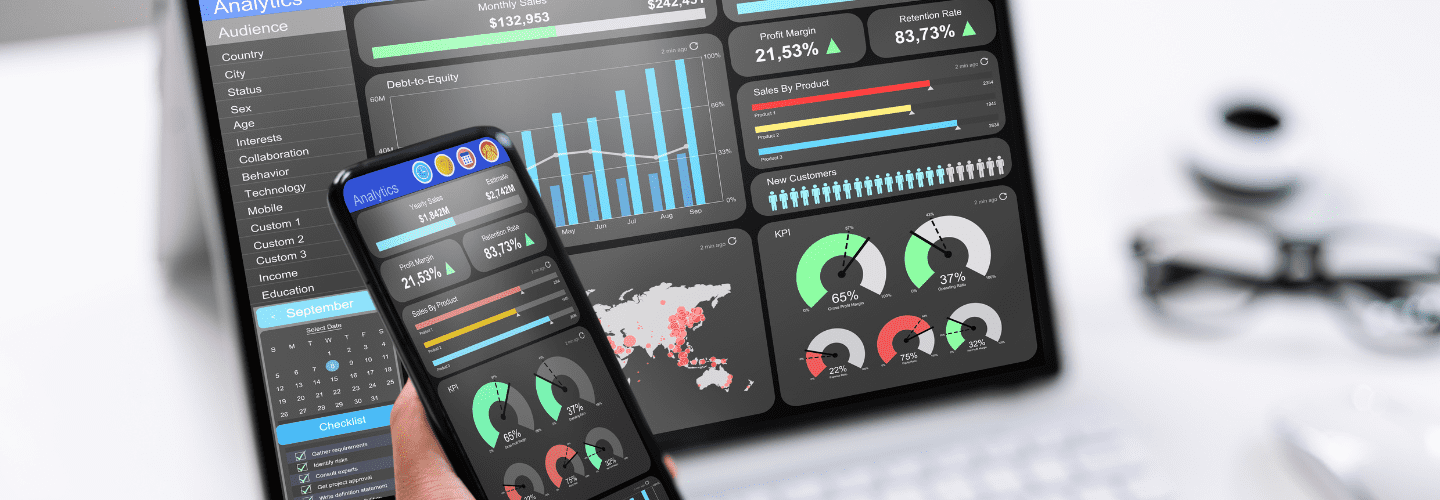Staying ahead of the curve is essential to any business. To thrive in this competitive landscape, companies are turning to the power of big data analytics. Imagine removing the guesswork, having the ability to optimize production, streamline supply chains, and enhance inventory management – all at your fingertips. It’s not just a dream; it’s the promise of big data.
What Big Data Is and What It Does
Big data refers to extremely large and complex datasets that are difficult to process using traditional data processing applications. Big data requires advanced techniques and technologies to capture, store, distribute, manage, and analyze the vast amounts of data involved and it is revolutionizing the way manufacturers and distributors operate.
It offers a treasure trove of opportunities to gain a competitive edge. By harnessing vast amounts of data generated from sensors, machinery, and operations, companies can unlock invaluable insights. Here’s a glimpse of the possibilities:
- Optimizing Production: With real-time data analysis, manufacturers can fine-tune their production processes. By monitoring machinery and suppliers, issues can be predicted and addressed proactively, minimizing downtime and boosting efficiency.
- Supply Chain Mastery: Big data provides a crystal-clear view of your supply chain. Analyzing data on demand, inventory, and supplier performance allows for better decision-making. You can optimize your supply chain to ensure timely deliveries and reduce costs.
- Hyper-Customization: Customers today expect personalized products. Big data enables you to tailor your offerings precisely to individual preferences, driving customer loyalty and satisfaction.
- Adapting to Market Changes: The business landscape is ever-changing. With big data, you can swiftly adapt to market fluctuations. By crunching data on factors like traffic, weather, and demand, you can adjust your strategies in real-time.
- Distribution Efficiency: Distributors can benefit immensely from big data. Real-time shipment tracking and dynamic routing ensure that your products reach their destination swiftly and efficiently. This not only pleases your customers but also reduces transportation costs.
- Warehouse Management: Managing warehouses efficiently is crucial. Big data analytics can improve warehouse operations by optimizing layout, predicting demand, and enhancing inventory accuracy.
Challenges in Implementation
Of course, every journey has its obstacles, and implementing big data solutions is no exception. Many companies face challenges on this exciting path:
- Data Silos: Data often resides in different departments, creating silos. This can hinder the flow of insights across your organization.
- Legacy IT Systems: Outdated IT systems may struggle with data extraction and analysis. Upgrading or integrating new systems can be a daunting task.
- Lack of Expertise: Big data requires specialized skills. Finding and retaining data science experts can be a challenge. Additionally, your existing workforce might need training to make the most of big data.
Best Practices for Success
While the challenges may seem daunting, there are best practices that can guide you toward successful implementation:
- Strategic Roadmap: Begin by defining your key business goals. Then, work backward to identify the data sources and analytics applications you need to achieve these goals.
- Centralized Data Warehouse: Develop a centralized data warehouse and analytics platform. This promotes accessibility and standardization, making it easier for different departments to collaborate.
- Invest in Expertise: Consider hiring data science experts or providing training to your current employees. Building in-house expertise pays dividends in the long run.
- Start Small: Begin with pilot projects to test the waters before rolling out big data initiatives across the entire organization. This approach minimizes risk and allows you to refine your strategy.
Big data analytics is no longer a luxury; it’s a necessity for manufacturers and distributors. By tapping into the wealth of operational data at your disposal, you can significantly boost productivity, lower costs, and exceed customer expectations. A thoughtful strategy and adoption plan is essential to focus your big data efforts for maximum business impact.
With the right approach, data-driven decision-making can drive transformative outcomes across manufacturing and distribution. Embrace the power of big data, and watch your business thrive in this ever-evolving landscape.
Unsure how to harness big data? Our experts can help develop the perfect strategy for your organization. Contact Rea & Associates today to unlock the full potential of your data and take your business into the future.
By Mindy Gallman (Lima Office)

